Super Blue Blood Moon 2018: Here Are The Best Photos and Videos
The rare Super Blue Blood Moon is in the record books and what an event it was.
Read our wrap story here about the meet-up of a Blue Moon, supermoon and total lunar eclipse. See more reader photos here! It was the first total lunar eclipse since 2015 and the first Blue Moon Blood Moon visible from the U.S. since 1866! See our video highlight reel above and read for more amazing photos, and details on what made the event so special.
Did you miss it? Don't worry, here's when the next Blood Moon lunar eclipses will occur through 2019!
The Most Amazing Super Blue Blood Moon Photos
See Videos and Images on Social Media
Teach Your Kids about the Super Blue Blood Moon!
Editor's note: If you capture an amazing photo or video of the Jan. 31 total lunar eclipse and would like to share it with Space.com for a story or gallery, send images and comments to: spacephotos@space.com. Here are just a few amazing views sent in by Space.com readers:
Get the Space.com Newsletter
Breaking space news, the latest updates on rocket launches, skywatching events and more!
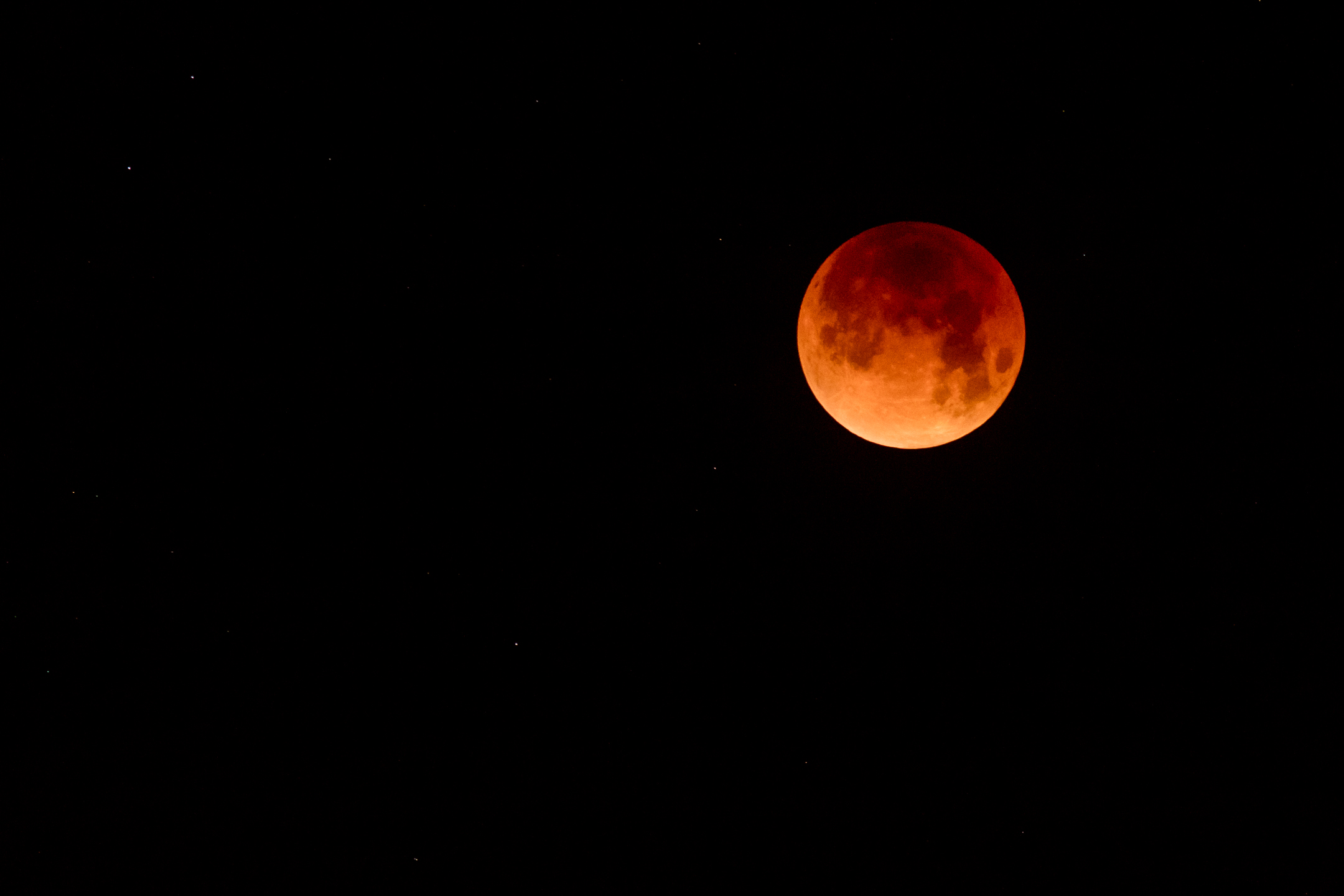
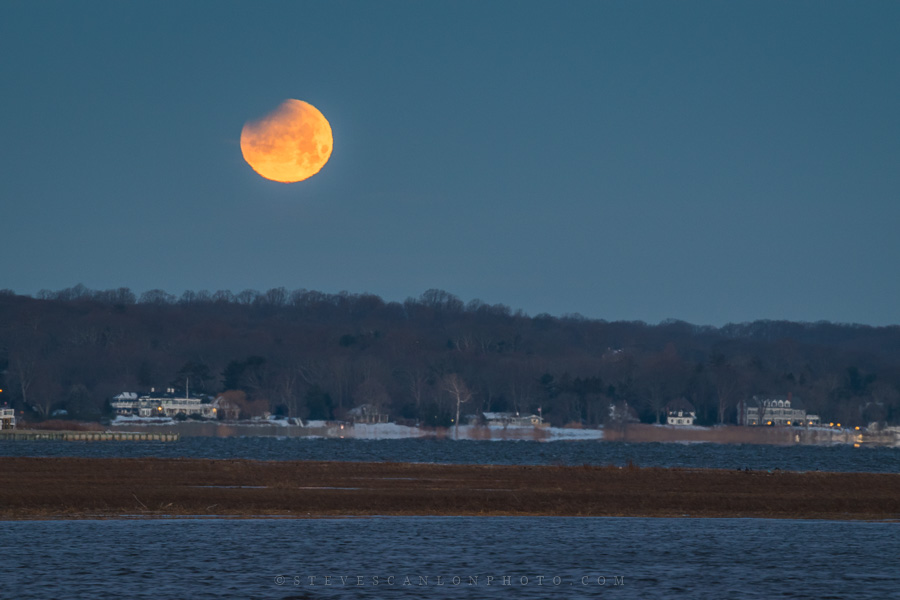
Videos
Astrophotographer Victor Rogus captured this stunning view of the moon setting in Florida, just as the eclipse was starting to get underway.
In Los Angeles, the iconic Griffith Observatory livestreamed the lunar eclipse and opened its doors to spectactors despite the pre-dawn timing of the event. The result: a truly unique view of the celestial event.
Updates
Blue Moon
![Thought to be called "blue" after an old english term meaning "betrayer," a Blue Moon is an extra full moon that occurs due to a quirk of the calendar. [See the full Blue Moon Infographic here.]](https://cdn.mos.cms.futurecdn.net/HHbm7kUWUR8zaAccXs7kqg.jpg)
A Blue Moon is when two full moons happen in the same calendar month; lunar eclipses occur when the moon passes into Earth's shadow; and supermoons happen when the moon's perigee — its closest approach to Earth in a single orbit — coincides with a full moon. In this case, the supermoon also happens to be the day of the lunar eclipse.
The first full moon of January occurred on the night of Jan. 1 or the morning of Jan. 2, depending on your location.You can see our full coverage of that event here:
Biggest Full Moon of 2018 Shines in Spectacular New Year's Photos
The second full moon and the lunar eclipse will occur on the night of Jan. 31 or the morning of Feb. 1. And the supermoon will take place on the night of Jan. 30, which is technically one day before the moon reaches peak fullness, but even NASA is willing to call the event a supermoon nonetheless. [How to Photograph the Supermoon: NASA Pro Shares His Tips]
On Jan. 31, not every place on Earth will see the Blue Moon this month, because the second full moon of January won't technically appear in those places until Feb. 1. These places include regions in eastern Asia and eastern Australia, where skywatchers won't see the first full moon until Jan. 2 and the next full moon until the morning of Feb. 1. For example, in Melbourne, Australia, the full moon arrives on Jan. 2 at 1:24 p.m. local time, and the next full moon is on Feb. 1 at 1:26 a.m., so skywatchers will technically miss the Blue Moon by less than 2 hours.
But their fellow Aussies in Perth, in the southwestern part of the country, will get one, since the first full moon occurs on Jan. 2 at 10:24 a.m. local time, so the moon will still look quite full when it rises at 7:35 p.m. On Jan. 31, the moon rises at 7:09 p.m. and reaches fullness at 9:26 p.m.
Blue Moons are not as rare as the old saying "once in a blue moon" implies; they happen about once every 2.7 years, because the number of days in a lunation (new moon to new moon) is a bit less than the usual calendar month — 29.53 days as opposed to 31 or 30 days (except for February, which has 28 days, so a blue moon cannot occur). A sequence of 12 lunations adds up to 354.36 days, against the 365.24 days in a year. The discrepancy adds up over time, until a year will have 13 lunations as opposed to 12. For some observers, 2018 will feature two Blue Moons — one in January and one in March (with no full moon in February).
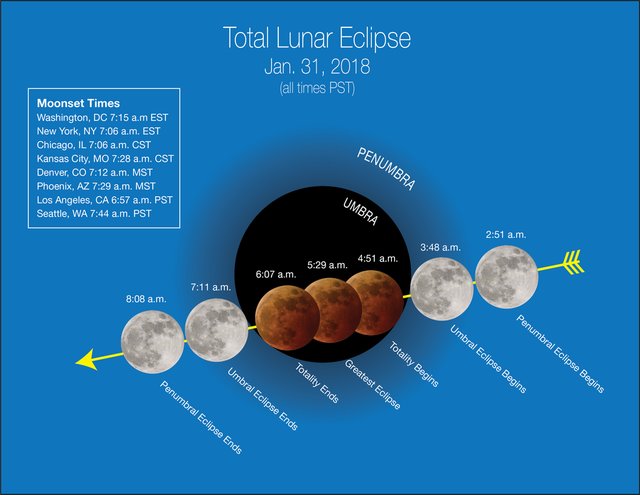
Supermoon and lunar eclipse
The real star of the show for moon watchers is the lunar eclipse on Jan. 31. The supermoon (when the moon reaches its closest point to Earth in this orbit) will be the day before, on Jan. 30 at 4:58 a.m. EST (0958 GMT). The moon will be 223,068 miles (358,994 kilometers) from Earth, compared to the average distance of 238,855 miles (384,400 km), according to NASA.
Though a supermoon does appear slightly larger in the sky than a full moon that takes place when Earth's lunar companion is farther away from us in its orbit, the difference is nearly impossible for most skywatchers to notice because the moon is so bright and the maximum possible difference in the moon's apparent size is small (only about 14 percent), according to NASA.
Unlike solar eclipses, which are only visible from specific places on Earth, lunar eclipses are visible from anywhere it is nighttime. Lunar eclipses don't occur every month because the plane of the lunar orbit is slightly tilted relative to the plane of the Earth's orbit, so the Earth, sun and moon don't always line up to put the moon in Earth's shadow. For the Jan. 31 lunar eclipse, viewers in some places will not be able to see the entire event because it starts near moonrise or moonset. Lunar eclipses are only visible on Earth's night side.
Observers in New York City will see the moon enter Earth's penumbra (the lighter, outer part of its shadow) at 5:51 a.m. on Jan. 31. The penumbra darkens the moon only a little; unless you're especially keen eyed, it is often difficult to notice. The moon will touch the umbra, the darker part of the shadow that gives the eclipse the distinctive look of darkening and reddening the moon, at 6:48 a.m. local time. But the moon sets only 16 minutes later, so New Yorkers will get to see only the first part of the eclipse. To see as much of the eclipse as possible, you'll want to be near a flat western horizon.
The situation gets better as you move west. Chicagoans will see the penumbra touch the moon at 4:51 a.m. local time, and it will still be a good 26.7 degrees above the horizon (about 53 times the apparent width of the full moon). The umbral eclipse will start at 5:48 a.m. local time, and by 6:16a.m., the moon will take on its characteristic blood-red color as it enters totality. Even so, it will set only minutes later, at 7:03 a.m., just as the sun rises.
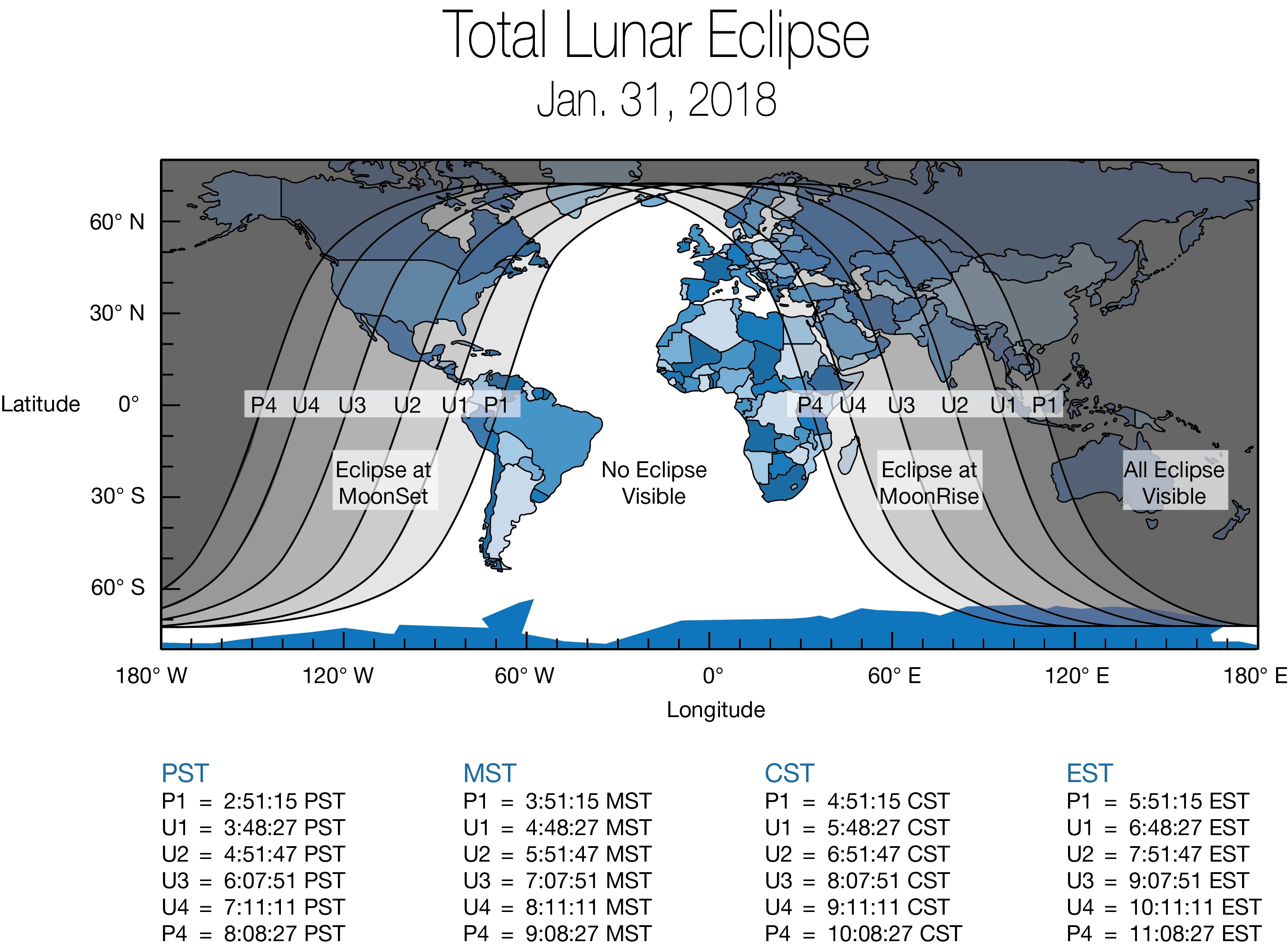
In Denver and points west, the eclipse will start at 3:51 a.m. local time, with the umbra reaching the moon's edge at 4:48 a.m. The point of maximum eclipse, when the moon is deepest in the shadow of the Earth, will occur at 6:29 a.m. For the Mile-High City, the moon will set after the lunar eclipse ends at 7:07 a.m. local time, when the moon exits the umbra. Moonset will follow at 7:10 a.m.
Californians will have a better view of the end of totality, as the penumbral eclipse will start at 2:51 a.m. local time, and the partial eclipse will begin at 3:48 a.m. At 4:51 a.m. local time, the total phase will start, ending at 5:29 a.m. Totality will end at 6:07 a.m., and the moon will emerge from the umbra at 7:11 a.m. The penumbral shadow will pass after the moon is just below the horizon.
As one travels west across the Pacific, the lunar eclipse will occur earlier in the night; skywatchers in Hawaii will be able to see the entire thing from beginning to end, as will Alaskans and viewers in eastern Asia and Australia. On Jan. 31, people in Tokyo will see the lunar eclipse's penumbral phase start at 7:51 p.m. local time. The umbra will touch the moon at 8:48 p.m., and the maximum eclipse will be at 10:29 p.m. At 11:07 p.m., the moon will reach the opposite side of the umbra, and at 12:11 a.m. on Feb. 1, it will emerge and enter the penumbra. At 1:08 a.m., the eclipse will end for viewers in Tokyo.
People in eastern Europe and western Asia will see something like a mirror image of the eclipse that observers in the Americas will see, because instead of occurring near moonset, the eclipse will start before the moon rises.
Viewers in Moscow will see the moon make a dramatic entrance as it rises while it is still red and deep in Earth's shadow. Moonrise there is at 5:01 p.m. local time on Jan. 31, and the moon will reach the edge of the umbra at 5:07 p.m. The moon will emerge from the dark part of Earth's shadow at 6:07 p.m. In New Delhi, the moon will rise at 5:55 p.m. local time and will be fully covered by the umbra at 6:21 p.m., so it will turn red just as it reaches about a half a hand's width above the eastern horizon.
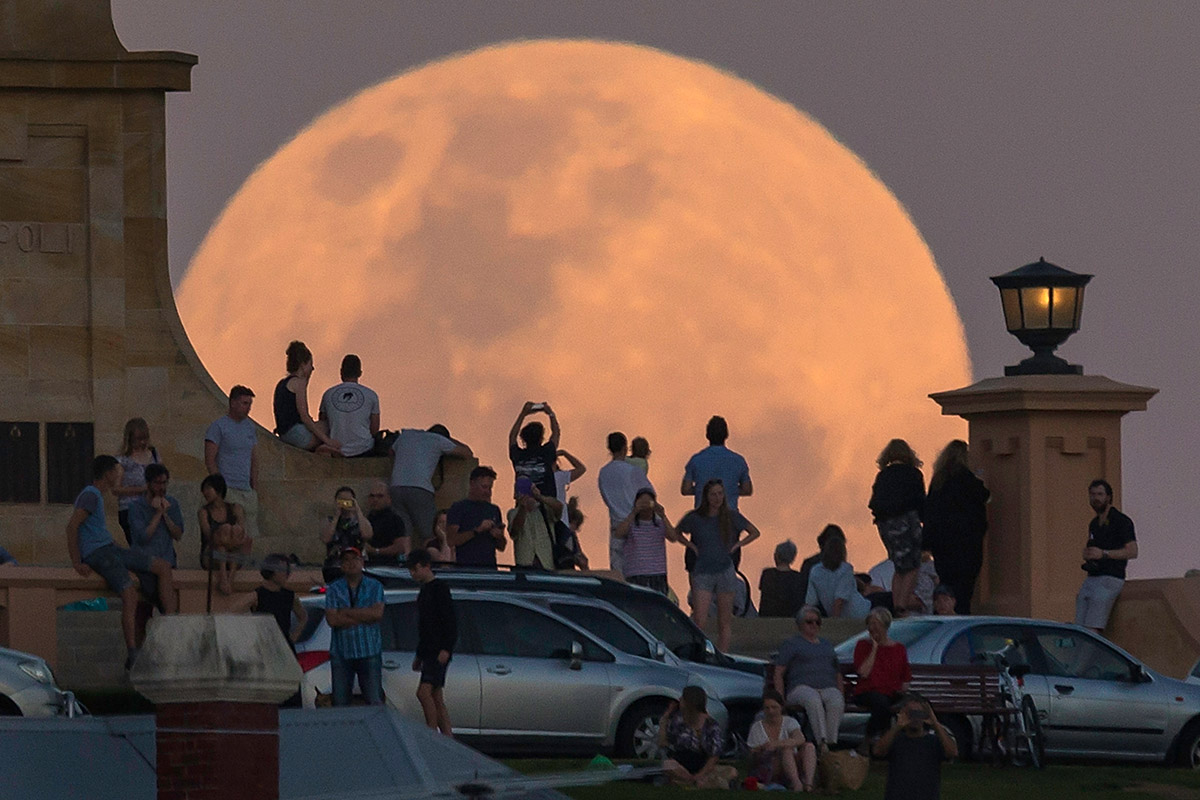
You can follow Space.com on Twitter @Spacedotcom. We're also on Facebook & Google+.
Join our Space Forums to keep talking space on the latest missions, night sky and more! And if you have a news tip, correction or comment, let us know at: community@space.com.

Jesse Emspak is a freelance journalist who has contributed to several publications, including Space.com, Scientific American, New Scientist, Smithsonian.com and Undark. He focuses on physics and cool technologies but has been known to write about the odder stories of human health and science as it relates to culture. Jesse has a Master of Arts from the University of California, Berkeley School of Journalism, and a Bachelor of Arts from the University of Rochester. Jesse spent years covering finance and cut his teeth at local newspapers, working local politics and police beats. Jesse likes to stay active and holds a fourth degree black belt in Karate, which just means he now knows how much he has to learn and the importance of good teaching.









